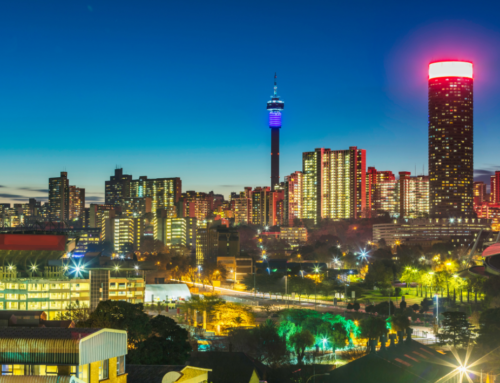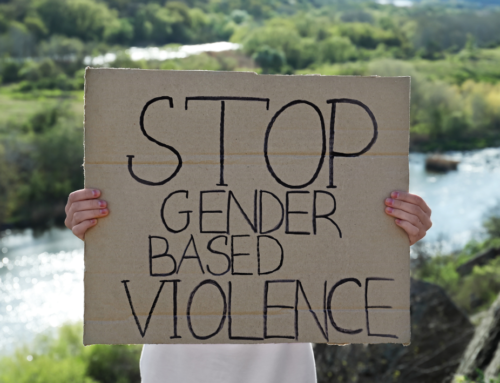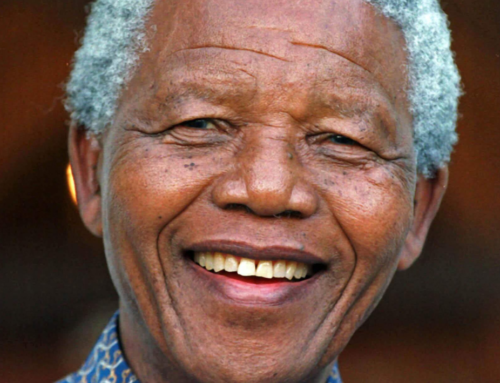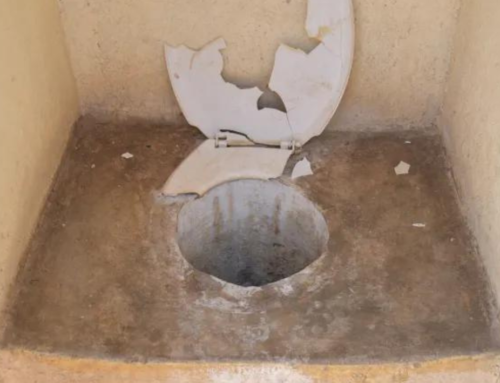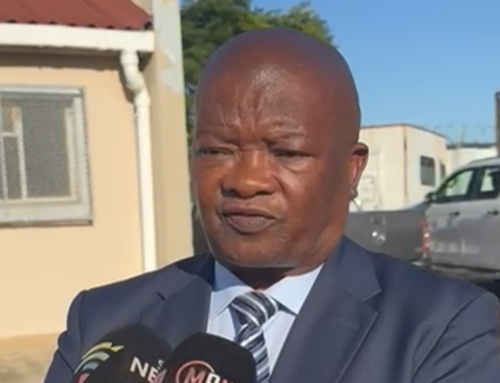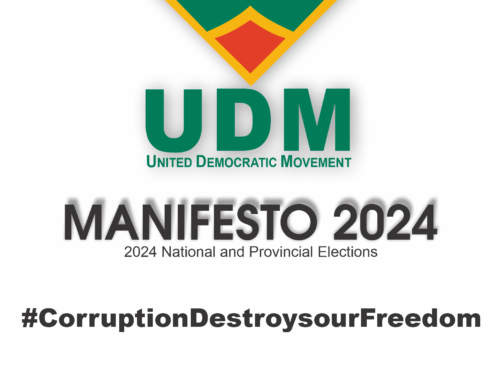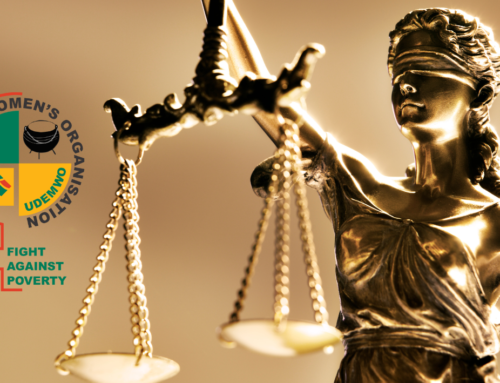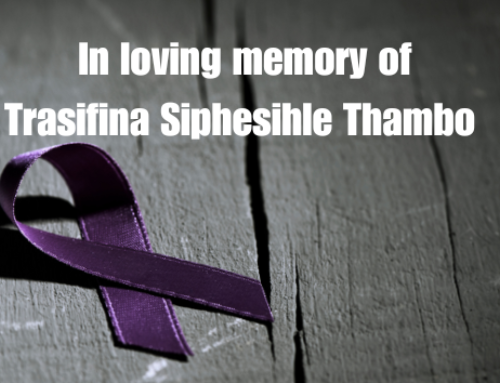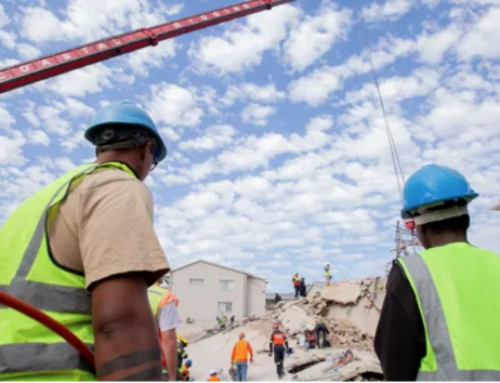
Speaking notes for Mthunzi Mdwaba, UDM Gauteng Premier Candidate on behalf of Bantu Holomisa, MP and President of the UDM at the Black Business Council’s Annual Black Business Summit “30 Years of Democracy – Progress so far and Plans to Accelerate Implementation of Reforms” on 30 April 2024 at Radisson OR Tambo Hotel and Convention Centre, Kempton Park, Gauteng
Check against delivery
Good morning fellow esteemed panellists, the leadership of the BBC and all other organisations that are present, ladies and gentlemen. As you would have noticed, I am not General Bantu Holomisa. Our President sends his regards and apologises that his pressured itinerary could not allow for him to be here. His recent announcement as the UDM EC Premier Candidate contributed to this.
Let me first pay my respects for our hero and co-father of black business, who has moved on and who was also the doyen of ethical governance, Dr Sam Motsuenyuane.
1994 is a year we shall never forget – the Rainbow Nation we called it, it promised much, it ushered a new era, one where we could hold our heads high, one where we could vote for the first time as Black people, one in which we could participate and have a say without having different rules for White, Indian, Coloured, Black men and women on how things could be done and whether you would have to ponder what skin colour was acceptable for participation or freedom of expression.
As a people, driven by the euphoria of the “rainbow moment”, we placed most of our eggs in the ANC basket, while other people did likewise in what would for many years become the “official opposition” of varying, up and down success.
The last 30 years were made up of two halves. The first 15 years were full of promise, a growing economy and improving competitiveness – at some stage the Swiss Institute for Management Development (“IMD”) Global Competitiveness Index had South Africa at number 45 out of 61 countries in 2008, compared to today at number 61 out of 63 countries. Granted, this was even at that time job-less growth at about 6% GDP at the highest, as opposed to the required 8/9% that would have ensured job-rich and sustainable economic growth.
The second 15 years have been a downward spiral. It is also significant that the second 15 years coincided with the Global Financial Crisis in 2008/09, with the honeymoon in the ANC/COSATU/SACP alliance starting to misfire, and without the decisive leadership to bring things together.
I cover this more below.
Everyone agrees that South Africa under ANC rule has been on the decline for a number of years now. The opposition in fairness, over the years has done nothing much than present an anti-ANC posture and critique, itself being part of the problem for its failure to present a credible and alternative cross-racial, cross-cultural, cross-gender, cross-age group implementable solution for our South Africa. For the entire 30 years, there has not been a conscious “cross-over” appeal for the complex country that our South Africa is, given its very mixed population made up of its different shades of Black, shades of White, shades of Asian accompanied by its numerous religious affiliations.
Throughout the 30 years, we lacked what I would refer to as the “Mandoza/Gabi Le Roux Nkalakatha” effect with music that is played at rugby, football, cricket stadia, as well as cross-age, cross-racial, cross-cultural nightclubs and other settings and received with the same excitement and jubilation that always breaks into dance! There has never been anything to hold the Nation together beyond the Mandela/Madiba magic charismatic and personality oriented “band-aid”.
We have also failed to sustainably capitalise and leverage on the huge sporting potential and feats by our players for Nation building in athletics, swimming, and team sport over the years, with rugby providing us with this opportunity no less than 4 times since 1994 as World Champs.
We, instead allowed populistic and empty rhetoric that had always been bubbling under the surface during the first 15 years, to rule the day, in the second 15 years. We allowed mediocrity, deployment, deity-ship and incompetence to become acceptable in the name of patriotism that was defined by a select “new private boys club” that monopolised the socio-political space.
The majority, was incrementally and progressively excluded from having a say via oppressive and abusive language, manipulation and bullying that varied from labelling that calls out some as “racist”, “reactionary”, “clever-black”, etc, – all in the name of a Developmental State phrasing that we are yet to see in practice, in spite of having strong international economic advocates for the important role of the State in driving innovation and economic growth, such as Professor Mariana Mazzucato serving on the South African President’s Economic Advisory Council.
Overall, the last 30 years has been a far cry from what is possible, what we deserve as South Africans, and what everyone else outside South Africa believes we are capable of achieving.
The Mandela years gave us hope, self belief, global awe and recognition. We were seen as the miracle nation that achieved its liberation from an evil apartheid era via a “blood-less” coup. The Mbeki years made us believe we were on an upward economic and academic trajectory and we found our Continental axis as Africans, with the championing of the African Renaissance. In global, multilateral platforms such as the UN, we were untouchable, with India, Brazil, South Africa (“IBSA”) forging its way into the Brazil, Russia, India, China (“BRIC”) grouping that gave birth to BRICS. The G20 invitation seemed to cement our place in the global leadership, demonstrating deftness in navigating the geo-political and global leadership complexities.
While it was Mbeki who identified the challenges South Africa had with two economies, one “developed” driven by “organised business” led by Business Unity South Africa (“BUSA”) and one informal, although much larger, clearly “unorganised” and supported, as well as deprived of infrastructure, one of the glaring mistakes was his placing too much emphasis on “white monopoly capital” being relied upon for providing Solomonic wisdom in shaping the economy. It was also starting to show that there was no strategic and structured succession planning by the ruling party, with the ANC/COSATU/SACP tripartite causing huge rifts and fractured ideologically fixated missteps.
The Zuma years presented the beginning of the decline hidden by cleverly spun rhetoric that placed empty populistic notions at the top of the agenda that were a disaster in which corruption intensified. Nationally divisive politics driven along ethnic grouping lines were starting to re-emerge with pre-1994 flavour. Now, after failing to rule from the grave, he reinvents himself in the form of the MK party.
The Ramaphosa years have been like a train crash in which corruption, criminality, unemployment, poverty, inequality and a non-competitive economy have reached unprecedented levels.
Although the Zondo Commission provided a rear view picture of what was happening during the Zuma/Gupta gate years, it is Ramaphosa, who in my view has allowed corruption to prosper and be more structured and systemic due to his demonstrated failure to make any decisions and/or act. Economic hardship has become the order of the day.
We are on the precipice of a cliff.
The TRC was what ushered all of us into the realm of post-94 forgiveness. What I believe we missed though, was the collective therapy, we as the oppressed needed as an intervention before we could rule. The sad reality of most oppressed “victims” fully aware that they were the subject of oppression, tend to become the inevitable oppressor themselves when there is no deliberate and sustained intervention.
Their only sphere of reference sadly, is that of being oppressed. This is also the reason Gender Based Violence (“GBV”) has increased exponentially, as revealed during the Covid period. There are of course some exceptions to the rule, but this is a rarity. This is a different discussion for a different day, but requires a deep dive and intense pondering.
The 2024 election is an opportunity for us to be freed from the mental bondage of being “indoctrinated by the liberalisation drug” that has been represented, packaged and sold by the ANC.
Einstein once said, “I’m more interested in the future than in the past, because the future is where I intend to live.”
Thirty years into our democracy, most South Africans have lost hope and trust in a government system that has failed them. We are not yet a failed state but have all the hallmarks and characteristics of one – high levels of political and service delivery protests that have become violent, high crime rates, overly bureaucratic processes, corruption, administrative and executive incompetence, increasingly incompetent criminal justice system (institutions entrusted with the responsibility to collaboratively control crime and protect the rights and personal liberty of individuals and the society), and an incompetent ineffective parliament.
Our economic and labour market system, the health system, the social security system, and the education and training systems are failing and at the brink of collapse.
The unemployment rate is the worst and highest according to world standards at about 32% (official definition). South Africa has one of the worst-performing education systems in the world, according to the Centre for Development and Enterprise (CDE). These shocking revelations are despite South Africa spending roughly 13% of its revenue on basic education, which should create competitive learning levels and a large, trainable workforce. 2024 gives us the last chance to reverse this. South Africans require change and a reset.
To fix South Africa’s economic and labour market system and create decent work (whilst creating hope for South Africans and a better South Africa to live in) will require of us to, inter alia:
1.Elect a government (with at least half the Ministers or no Deputy Ministers) with a cadre of ethical and capable leadership that can take bold and quality decisions and mobilise the Nation towards achievement of the vision, strategic objectives and goals of South Africa Inc. The government system must be overhauled and a number of things should change if we are to head in the right direction as a people and as a Nation.
2.Develop and implement a National Employment Policy (“NEP”) and an Industrial Policy (“IP”).
It is a tragedy and a travesty that we do not have a NEP even after the change of name from the Department of Labour to the DEL when Ramaphosa came in for the 6th administration. South Africa’s National Employment Policy and Strategies should focus on socio-political system reform, economic and labour market systems reform, industrial structure adjustment, technological innovation, Vocational Training, Schemes for job retention as provided for in s7 of the Employment Services Act. This requires an urgent reconfiguration of the Department of Employment and Labour (“the DEL”) so that Productivity SA takes over the Labour Activations Programme (“LAP”) assets that are currently part of the Unemployment Insurance Fund “UIF”) and get the Temporary Employer/Employee Relief Scheme (“TERS”) and the Public Employment Services (“PES”) within the DEL. This will enable the DEL to focus on Policy which is in line with international benchmarking of all progressive employment and labour government departments. This would also align the Master Plans by the Department of Trade, Industry and Competition which are undirected without an Industrial Policy (“the dtic”).
Active Labour Market Policies, including a NEP and Programmes, improve labour market performance.
The NEP should give expression to South Africa’s commitment to achieve the UN Sustainable Development Goals (“SDGs”), emboldened by the fact that, sustained and inclusive economic growth is a prerequisite for sustainable development. This, in turn, would contribute to improved livelihoods for its citizens. Giving effect to SDG: 8 – Decent Work and Economic Growth, with SDG 1 – No Poverty, 2 – Zero Hunger, 7 – Affordable (and available Energy & 10 – Reduced Inequality) and 17 – Strong Institutions, Policy Coherence & Coordination are critical.
Failure to create an enabling policy environment for entrepreneurship and sustainable SMMEs has led to the productivity and competitiveness of SMMEs (particularly Industrial SMMEs) being low.
Lack of access to markets, technology, business infrastructure, information etc, are some of the constraints for SMMEs scaling up employment generation in a significant manner and playing a meaningful role in the economy. I came across an informative article by Dr Bvuma entitled “Rural digital development is marked by progress and setbacks, appearing in the City Press, dated 10 March 2024, in which she paints the welcome and increasing advancement of small businesses in informal settings, in the rural villages, in growing their businesses via digital technology. However, she is quick to also point out the extreme challenges brought about by what she refers to as “physical and socio-political difficulties that continue to impede South Africa’s transformation and development, particularly in the rural areas.” The less said of course about load shedding the better! The miracle though has been that we are now on day number 34 without load shedding for the elections! Intriguing!!
An IP which we should have had at least 10 years ago should be predicated on: A comparative advantage – South Africa is endowed with resources (both natural in the form of minerals, vast amounts of agricultural land and two oceans) which should be optimally exploited for long-term competitiveness and sustainable growth.
Linking investment and funding to Productivity outcomes – creating a productivity and competitiveness mindset and culture as well as accountability thereof is critical for entrepreneurship and sustainable enterprises. This will require an Enterprise Development and Support Ecosystem that, (a) encourages the application of decent and productive workplace practices, (b) address sector-specific challenges through value chain and cluster upgrading which is linked to training and skills development along the value chain, (c) promote technology & ways of doing business that are environmentally friendly; and (d) Integrate government support for formal and informal SMMEs, start-ups and cooperatives, with government as funder of first resort, with the funding linked to productivity outcomes.
Creating Infrastructure for Industrial Parks and Special Economic Zones should form the Pillars of the Sector Master Plans, which have proved successful in Asia. There are approximately 27 established Industrial Parks established and over 300 privately owned Industrial Parks, which are geographically designated areas set aside for specifically targeted economic activities, supported through special arrangements. This valuable infrastructure is neglected.
Creating an enabling environment within the informal economy, supporting quality jobs for young people critical for sustainable jobs and growth.
Focussing on Growth Sectors & Future of Work (“FoW”) as an integral part of our Policies is the smart play we need.
My experience in the International Labour Organisation (“the ILO”), where I led the team of employers that participated in the drafting and finalisation of the ILO Declaration on the FoW – my book on the ILO is due to be published soon – the UN, BRICS and the G20, where I participated in all Sub-Committees in the B20 Employment and Education Subcommittees, chairing both the German and Italian ones, leaves me with no doubt that the Employment and Industrial Policies I refer to above are imperative for us to move forward in a sustainable manner in creating jobs, ensuring we have sustainable enterprises that grow a competitive South African economy.
Growth sectors include amongst others, the creative industries, which makes the copyright and intellectual property environment key (currently it’s a mess following the ruling party’s en masse parliamentary vote for flawed amendments, an extremely foreign and mischievous, “Fair Use Clause” and then having to lie to them and make a mockery of the arts), the Cannabis/Hemp industry recently highlighted in a Businesstech article, on the 8th of March 2024, entitled, “Government leaves cannabis farmers high and dry in South Africa, stressing the high possibilities and opportunities, being thwarted by challenges in obtaining licences and funding for emerging businesses. This is in spite of releasing a National Cannabis Master Plan, in 2021, outlining that the formal cannabis industry would be a game-changer for the country’s economy – the industry that is predominantly operated underground and traded on the black market is currently worth an estimated R28 billion.
3.Attend to an urgent Country Skills Audit or Consolidate different Siloed Research
This is urgent and requires prioritisation so we can then be able to manage the scarce skills and illegal immigration dire problems we have in the country. Whatever we do, we must close the borders contrary to what I hear some saying!
4.Urgent attention on improving our productivity and Global Competitive Index
Productivity SA is an Employment Services Act entity that has been ignored and allowed to go to waste for years. While its prominence has grown in the last 5/6 years, it is still misfiring and is grossly under-funded, in spite of a Parliamentary intervention to support its funding. Its role, simply, is to contribute to the creation of jobs, ensure retention of jobs, as well as safeguard the competitiveness of the economy. The reconfiguration I refer to above would ensure that public employment services together with private employment services have a much-needed urgent collaboration.
It is also responsible for collating data on competitiveness in partnership with the IMD. The IMD Global Competitiveness Report is very useful to responsive, attentive governments, labour federations and the private sector in that it gives an annually comprehensive analysis on what works, does not work and how to attend to areas that do not work for quick and expedited remedial action.
Linking Productivity Growth to Decent Work, globally is generally accepted as a catalyst for creating decent work, inclusive growth and shared prosperity.
5. Corruption and Crime eradication
The cancerous tumour of corruption has grown and spread through government exponentially to the point where it has become normal and expected. Corruption must be rooted out and not by paying it mere lip service, or ignoring the problem, or lateral deployments, as we have seen the ruling party do for years. Those guilty of corruption and tender-preneurship must be prosecuted, named, shamed and jailed. These are criminals of the worst kind. No one must be spared!!
In our Manifesto, we recommend that we have specialised anti-corruption courts given the level at which we have structured and systemic corruption.
To address maladministration effectively, governments must prioritise accountability, transparency, and good governance practices. This includes implementing robust oversight mechanisms, promoting ethical conduct among public officials, strengthening institutions, and empowering citizens to hold their government accountable.
Additionally, investing in training and capacity-building for public servants can help improve professionalism and efficiency in government operations. By taking proactive measures to address maladministration, governments can build trust, enhance service delivery, and promote the wellbeing of their citizens.
Accounting officers are tasked with ensuring that government resources are managed impartially and independently, in accordance with legal and regulatory requirements. Political interference compromises this independence, leading to decisions that may be influenced by political considerations rather than the public interest.
Accounting officers should be appointed by the Public Service Commission and not by Ministers, as each time that there is a cabinet reshuffle, ministers tend to take their entire staff complement with them. This is nonsensical and disrupts continuity within departments.
6. National Convention (Indaba)
The reality is that the problems South Africa is facing are complex and far-reaching and need a comprehensive solution.
The call by the UDM for an indaba on the scale of a Convention for a Democratic South Africa (Codesa) is significant and underscores the need for a comprehensive and inclusive dialogue to address the multifaceted challenges facing South Africa. An indaba of this scale would bring together a wide range of stakeholders, including government, political parties, business bodies like yourselves, the Black Business Council, faith-based leaders, labour unions, NGOs, traditional leaders, and others.
This would give us an opportunity to discuss all kinds of pressing and urgent matters for the turning around of our ailing economy, including, but not limited to, Land, the SOEs, the dilapidated infrastructure, matters of foreign direct investment, coherence in our foreign policy, environmental and climate change related matters and how to structure our economy, safety for our people, with Gender Based Violence being central to these discussions, Quality Education, Affordable Energy and Health for all, with Mental Health receiving very key attention.
Dialogue and consensus seeking, in the manner used in the ILO which we are accustomed to would be the way to rebuilding and recalibrating South Africa.
The National Convention must then come up with a blue-print to take resolutions that must be implemented through government with a time line for implementation and follow-up.
In conclusion, we can spend all our time lamenting the last 30 years, with resultant depression and falling over the cliff, or do something about it.
The UDM is the political home of all South Africans, united in the spirit of South Africanism by our common passion for our country, mobilising the creative power inherent in our rich diversity, towards our transformation into a Winning Nation. Vote UDM!!
Let us stop clinging to the past. It was but that, the past. We must build and have the responsibility to construct the FUTURE WE WANT.
Thank you.



